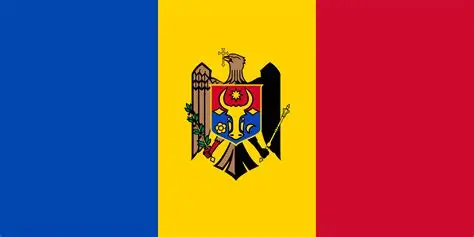Moldova’s ruling pro-European Action and Solidarity Party (PAS) has retained its parliamentary majority following Sunday’s closely watched election, a result seen as a decisive test of President Maia Sandu’s efforts to steer the country towards European Union membership.
With more than 99.5 per cent of ballots counted, PAS secured 50.03 per cent of the vote, according to figures released by the Central Election Commission. The result translates into a majority in the 101-seat parliament. By contrast, a Moscow-leaning alliance of parties led by former president Igor Dodon won 24.26 per cent.
The outcome exceeded expectations for Sandu’s party, which had been forecast to remain the largest political force but risk falling short of an outright majority. The victory strengthens her pledge to deliver EU membership within the next decade.
Sandu, a former World Bank official elected president in 2020 on an anti-corruption platform, has made European integration the cornerstone of her presidency. Casting her ballot in Chișinău, she urged voters to recognise the stakes: “Moldova, our dear home, is in danger and it needs the help of each one of you. You can save it today with your vote. Tomorrow may be too late.”
The election took place against a backdrop of mounting allegations of Russian interference. Moldovan authorities have accused Moscow of funnelling money into pro-Russian parties, orchestrating vote-buying schemes and spreading propaganda to undermine pro-European sentiment. A Reuters investigation last week reported that dozens of priests had been recruited and paid to encourage congregations to vote against PAS.
Officials also reported attempts to disrupt the vote on polling day, including cyber-attacks on election systems and fake bomb threats at overseas polling stations in Brussels, Rome and the United States.
Stanislav Secrieru, Sandu’s national adviser, said Moldovans had voted “under massive pressure from Russia and its proxies”. Moscow has dismissed the allegations as “anti-Russian” and “unsubstantiated”.
Two pro-Russian parties were barred from the contest on Friday over financing irregularities, a decision that drew sharp criticism from Moscow and angered opposition groups. Dodon, who leads the Patriotic bloc, alleged electoral violations and called for a peaceful protest outside parliament on 29 September.
The result is expected to be welcomed in Brussels and other European capitals, where concerns had been mounting that Moscow could gain influence in a strategically sensitive region bordering Ukraine and Romania. A western diplomat in Chișinău described the stakes as “disproportionately big for Europe”, warning that a reversal towards Russia would pose a “massive headache for European security”.
Despite the political victory, Sandu faces significant domestic challenges. Inflation remains high, emigration continues to sap the workforce, and economic growth has been modest. Her supporters argue that these difficulties stem largely from external shocks, particularly Russia’s war in Ukraine, which has disrupted trade routes, triggered an energy crisis and forced Moldova to accommodate tens of thousands of refugees.
PAS enjoys strong backing from Moldova’s sizeable diaspora and younger urban voters, but remains less popular in regions with entrenched pro-Russian sentiment, including Transnistria, where Moscow maintains around 1,500 troops following a separatist conflict in the 1990s—and the semi-autonomous region of Gagauzia.
Moldova, which gained independence from the Soviet Union in 1991, has long oscillated between closer ties with Brussels and reliance on Moscow. Last October, Sandu’s government held a referendum in which voters narrowly approved enshrining EU membership as a constitutional goal. On the same day, she was re-elected president for a further four-year term.
The parliamentary result consolidates her mandate, but the path towards EU accession is likely to remain fraught with both domestic and geopolitical obstacles.



